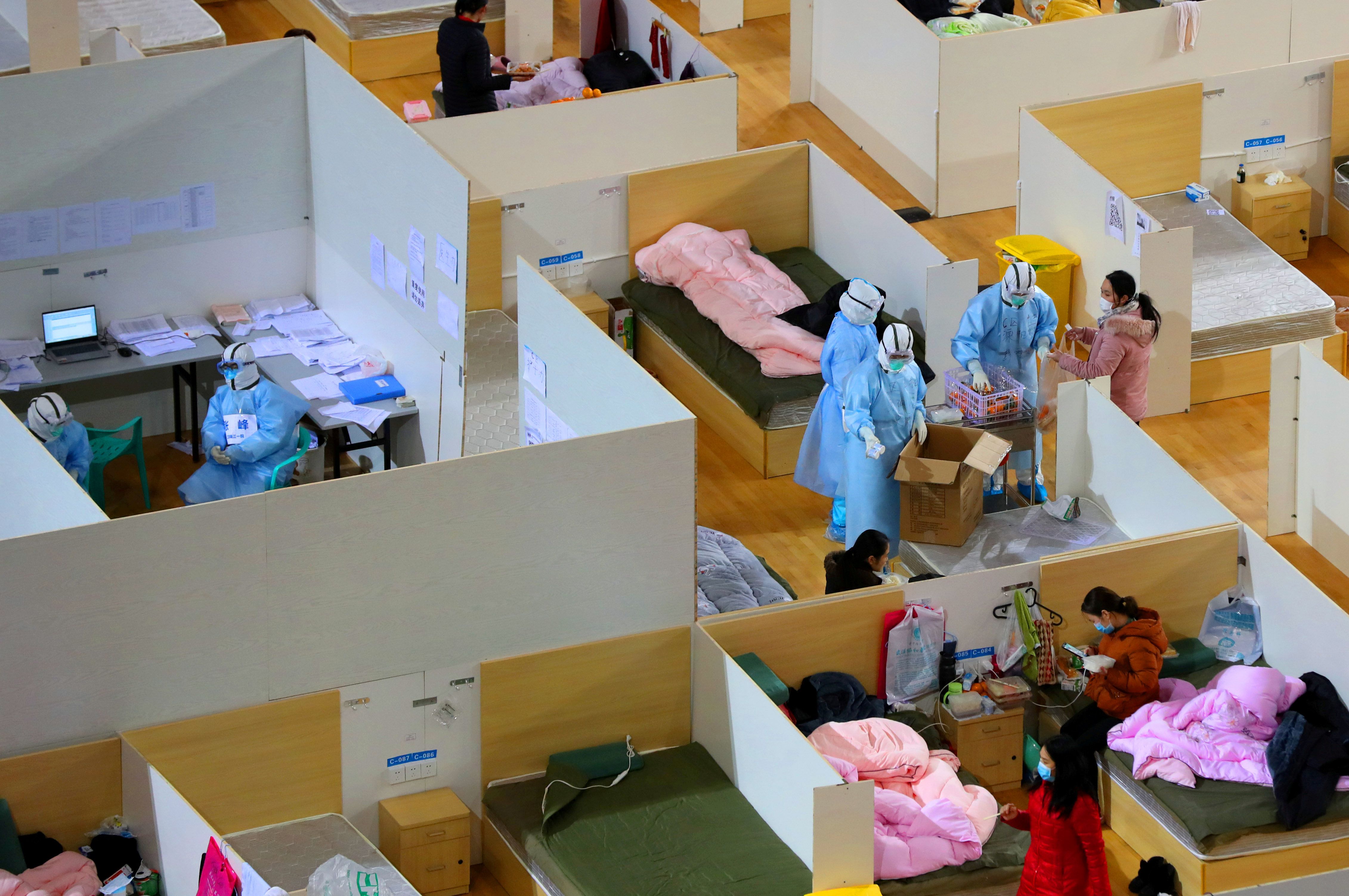March 03, 2020
As the new coronavirus, known as COVID-19, continues to spread, it's exposing some uncomfortable truths about our increasingly interconnected and globalized world.
Here are two:
Fragile supply chains: Decades of fine-tuning global manufacturing have given billions of people access to quality consumer goods at affordable prices. That's the upside of globalization. But the same trend has concentrated production of important items in certain countries, creating new vulnerabilities. For example, regions of China and broader Asia that produce most of the world's smartphones have been forced to idle or cut manufacturing because of the outbreak. The decline in Chinese factory activity has been so pronounced, it's actually visible from space. And US officials recently warned of drug shortages due to the shuttering of factories in China that make essential ingredients for some important medicines.
Fragile safety nets: Well before the new virus emerged in China, an annual report by the World Health Organization warned that the chances of a global outbreak were rising and that the world was "not prepared for a fast-moving, virulent respiratory pathogen pandemic." It cited the usual problems – a lack of funding for public health monitoring and prevention, bureaucratic hurdles, and weak medical infrastructure, especially in poor and middle-income countries. But it also warned of "a breakdown in public trust…exacerbated by misinformation that can hinder disease control communicated quickly and widely via social media." In the US, the safety net is further weakened by a lack of mandatory paid sick leave, which some people fear will compel sick people to show up at work, where they can infect colleagues and customers.
It's no big mystery why the world works this way: Money doesn't grow on trees. Taxpayers worry about their wallets, companies worry about the bottom line, and politicians worry about voters or special interests. In normal times, no one has much appetite to fund big investments in public health or other preventive measures. No one wants to build extra factories in far-flung places, "just in case." What's more, reorienting our economic and political systems to be more resilient is a massive and long-term undertaking. As crises recede, it becomes hard to convince people or governments to make sacrifices for the long-run good. In a sense, the efficiency of our 21st century economies in normal times comes at the cost of resiliency in extreme circumstances.
Still, something's got to give. Coronavirus won't be the last global pandemic. And it's part of a bigger trend of looming cross-border challenges like climate change and cyberattacks that will also stress systems designed for simpler times, as severe weather and threats to critical infrastructure grow more frequent. Finding the political will and the money to build stronger, more resilient systems won't be easy, but what will it take to convince a critical mass of voters and leaders that it's essential?
More For You
- YouTube
In this Quick Take, Ian Bremmer weighs in on the politicization of the Olympics after comments by Team USA freestyle skier Hunter Hess sparked backlash about patriotism and national representation.
Most Popular
Bad Bunny during the Super Bowl LX halftime show press conference at Moscone Center.
Kirby Lee-Imagn Images
100 million: The number of people expected to watch the Super Bowl halftime performance with Bad Bunny, the Puerto Rican superstar and newly minted Album of the Year winner at the Grammys.
Alysa Liu of Team USA during Women Single Skating Short Program team event at the Winter Olympic Games in Milano Cortina, Italy, on February 6, 2026.
Raniero Corbelletti/AFLO
Brazilian skiers, American ICE agents, Israeli bobsledders – this is just a smattering of the fascinating characters that will be present at this year’s Winter Olympics. Yet the focus will be a different country, one that isn’t formally competing: Russia.
What We’re Watching: Big week for elections, US and China make trade deals, Suicide bombing in Pakistan
Feb 06, 2026
Japanese Prime Minister Sanae Takaichi, president of the Liberal Democratic Party (LDP), appeals for a candidate during a street speech of the House of Representatives Election Campaign in Shintomi Town, Miyazaki Prefecture on February 6, 2026. The Lower House election will feature voting and counting on February 8th.
The Yomiuri Shimbun
Japanese voters head to the polls on Sunday in a snap election for the national legislature’s lower house, called just three months into Prime Minister Sanae Takaichi’s tenure.
© 2025 GZERO Media. All Rights Reserved | A Eurasia Group media company.
